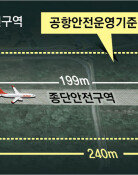U.S. excludes consumer goods from export-controlled items to Russia
U.S. excludes consumer goods from export-controlled items to Russia
Posted March. 04, 2022 08:08,
Updated March. 04, 2022 08:08
The U.S. Commerce Department has decided not to impose the Foreign Direct Product Rule (FDPR) restrictions on exports to Russia on consumer goods including smartphones, cars, and washing machines. Shipments until March 26 are exempted from the FDPR rule and can thus be exported to Russia.
The South Korean Ministry of Trade, Industry, and Energy announced on Thursday that the U.S. Commerce Department’s Bureau of Industry and Security excluded some consumer goods, such as smartphones, from export-controlled items, so long as they are not exported to Russian military end users, and that it mentioned those items may be deemed as exceptions to the FDPR.
It means that smartphones, cars, and washing machines, which account for a bulk of South Korea’s exports to Russia, do not need to obtain approval from the U.S. The Foreign Direct Product Rule imposes license requirements on any foreign-produced items by using U.S.-origin technology or software before being exported to Russia.
The U.S. Department of Commerce commented with regard to a moratorium of the FDPR application that shipments of the items subject to the FDPR until March 26, which is 30 days after the directive takes effect, will be exempted from the application of the FDPR. It also stated that South Korean companies’ exports of components to their subsidiaries located in Russia may be allowed after going through separate review measures. It is likewise the same for cases where subsidiaries of South Korean companies abroad seek to export items to their subsidiaries in Russia.
However, until South Korea is added in the list of countries excluded from the FDPR, some export bans seem unavoidable. The South Korean government is negotiating with the U.S. so that South Korea gets exemption from U.S. FDPR. A government official said it may take one to two months to get exemptions. Even if South Korea is exempted from the FDPR, items subject to the FDPR application will still have to obtain approval from the South Korean government.
Hee-Chang Park ramblas@donga.com







